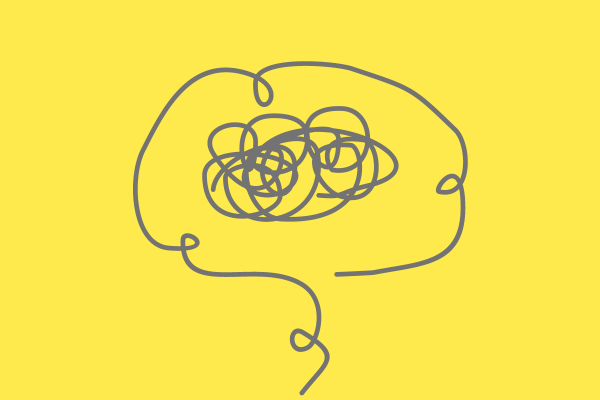“Depressive Disorders” is the last of four articles in series on mental health awareness by Abbie Call. Go back to the first article on depressive disorders here.
The last three most common mental disorders are all close to the 1% range. Borderline personality disorder affects 1.4% of the United States population, obsessive-compulsive disorder, or OCD, affects 1.2%, and schizophrenia less than 1%. These disorders, though less common, are still likely to show up a few times in small towns.
These are three distinct disorders. As a loved one of someone diagnosed with one of these disorders, it can be helpful to know the symptoms and how to help.
What Are the Symptoms?
These last three disorders are a lot less common. They can sometimes be difficult to diagnose because they share symptoms with other disorders. OCD, for example, has a lot of similarities with anxiety disorders, but like PTSD, it was separated from the group with the fifth diagnostic and statistical manual in 2013. Likewise, borderline personality disorder can look like depression, PTSD, bipolar disorder or an anxiety disorder.
Borderline Personality Disorder
Borderline personality disorder is just one of a number of different personality disorders. Its symptoms are dramatic and emotional thoughts and behaviors. It causes impulsivity and difficulty managing emotions and relationships.
Obsessive-Compulsive Disorder
OCD symptoms are categorized by obsessions and compulsions. People with OCD will often feel very anxious unless they act on their compulsions.
Common obsessions:
- Fear of germs.
- Fear of losing something.
- Worries about harm coming towards yourself or others.
- Unwanted forbidden thoughts.
Common compulsions:
- Excessive cleaning or hand washing.
- Repeatedly checking on things.
- Compulsive counting.
- Ordering and arranging things in a particular, precise way.
Schizophrenia
Schizophrenia is likely the most serious disorder among those covered in this series. Like many symptoms of mental disorders, schizophrenia symptoms are divided into three categories:
- Psychotic symptoms like hallucinations and delusions.
- “Negative” symptoms, which make a person seem withdrawn.
- Cognitive symptoms like trouble using information, making decisions, and paying attention.
All three of these mental disorders require a diagnosis by a medical professional. They will often also include a physical exam to make sure the symptoms are not caused by something else.
What Can You Do?
Though there is less research done on how to help with these disorders, there are a few things family members and loved ones can do.
1. Set boundaries.
Particularly with borderline personality disorder, it is important to set boundaries. Do not tolerate abusive behaviors. Set boundaries a little at a time during moments where you can both talk calmly and agree on them.
2. Stop enabling.
Enabling loved ones will just make symptoms worse in the long run. People with OCD get temporary relief when they act on compulsions and get family members to act on them as well, but it does not stay. Additionally, don’t protect a loved one with borderline personality disorder from the consequences of angry outbursts. If they don’t treat you well, walk away.
3. Acknowledge the disorder and its difficulties.
Mental disorders come with difficulties for the people dealing with them as well as their loved ones. Schizophrenia is especially hard on people. Be realistic about the challenges, be patient, and be willing to celebrate little changes and progress.
Therapy or medications are usually an important part of recovery for someone suffering from borderline personality disorder, OCD or schizophrenia. Schizophrenia will often require extra family education, rehabilitation, and skills training.
Finally, keep in mind that anyone still has the power to live a full and happy life no matter their condition.
HelpGuide.org stressed that it is crucial you “not buy into the myth that someone with schizophrenia can’t get better or live a full and meaningful life.” That is true of any disorder.
Anyone with any anxiety, depression, post-traumatic stress, bipolar, borderline personality, obsessive-compulsive or schizophrenia disorder can always improve their symptoms and have a happy life.
– by Abbie Call
Feature image caption: Borderline personality disorder differs from bipolar disorder in that it has less to do with mood swings and more to do with lessened overall control of emotions. OCD’s symptoms are similar to those of anxiety, but it is focused around specific obsessions and compulsions. The final most common mental disorder, schizophrenia causes hallucinations, delusions and difficulty processing information. Courtesy of Abbie Call, The Byway.

Abbie Call – Cannonville/Kirksville, Missouri
Abbie Call is a journalist and editor at The Byway. She graduated in 2022 with a bachelor’s degree in editing and publishing from Brigham Young University. Her favorite topics to write about include anything local, Utah’s megadrought, and mental health and meaning in life. In her free time, she enjoys reading, hanging out with family, quilting and hiking.
Find Abbie on Threads @abbieb.call or contact her at abbiecall27@gmail.com.

